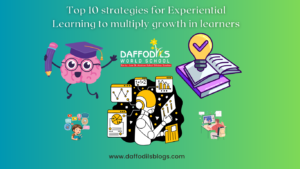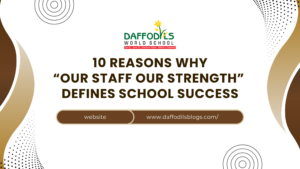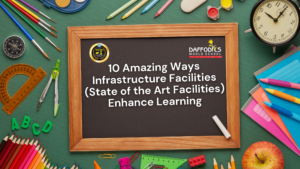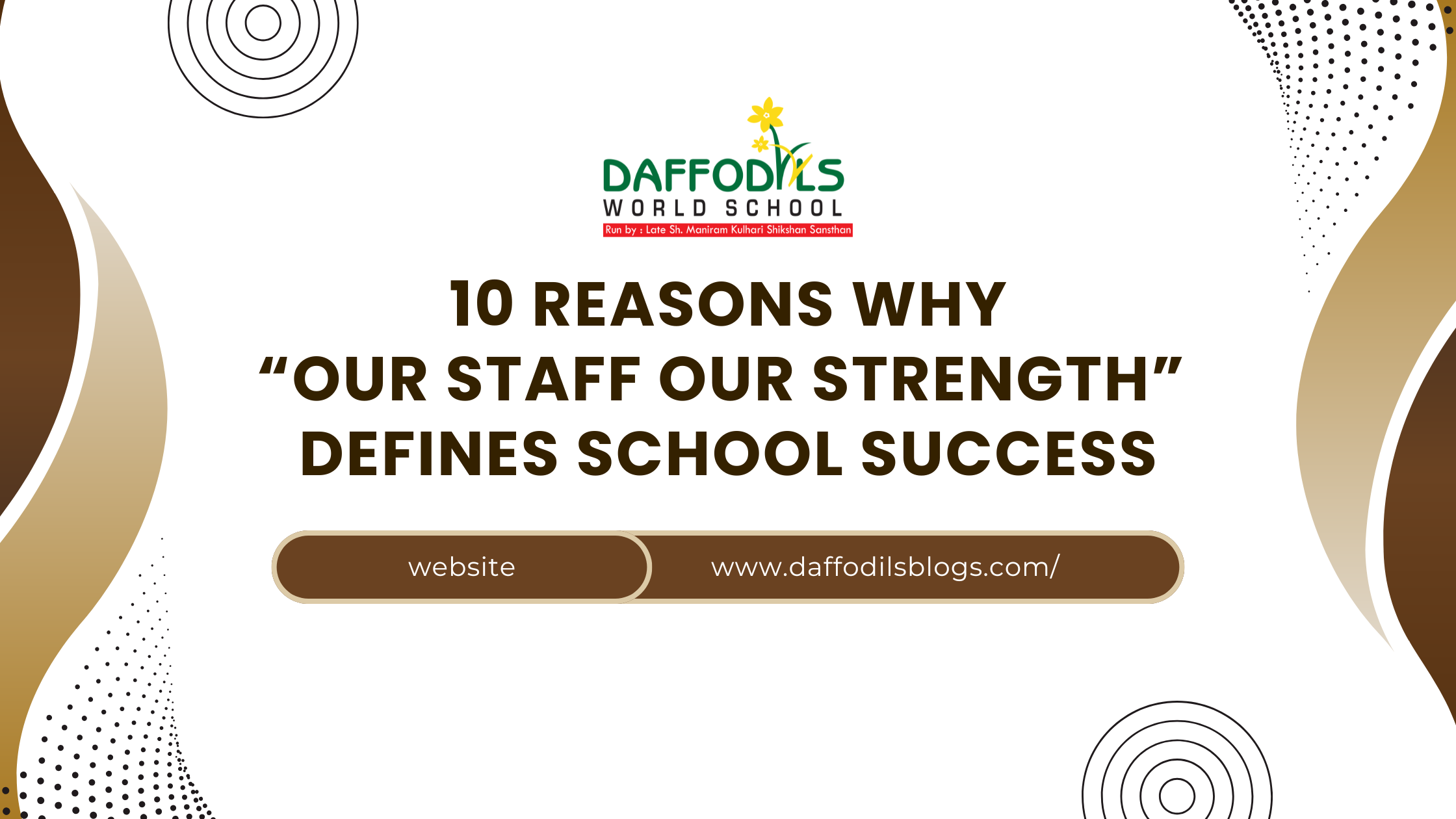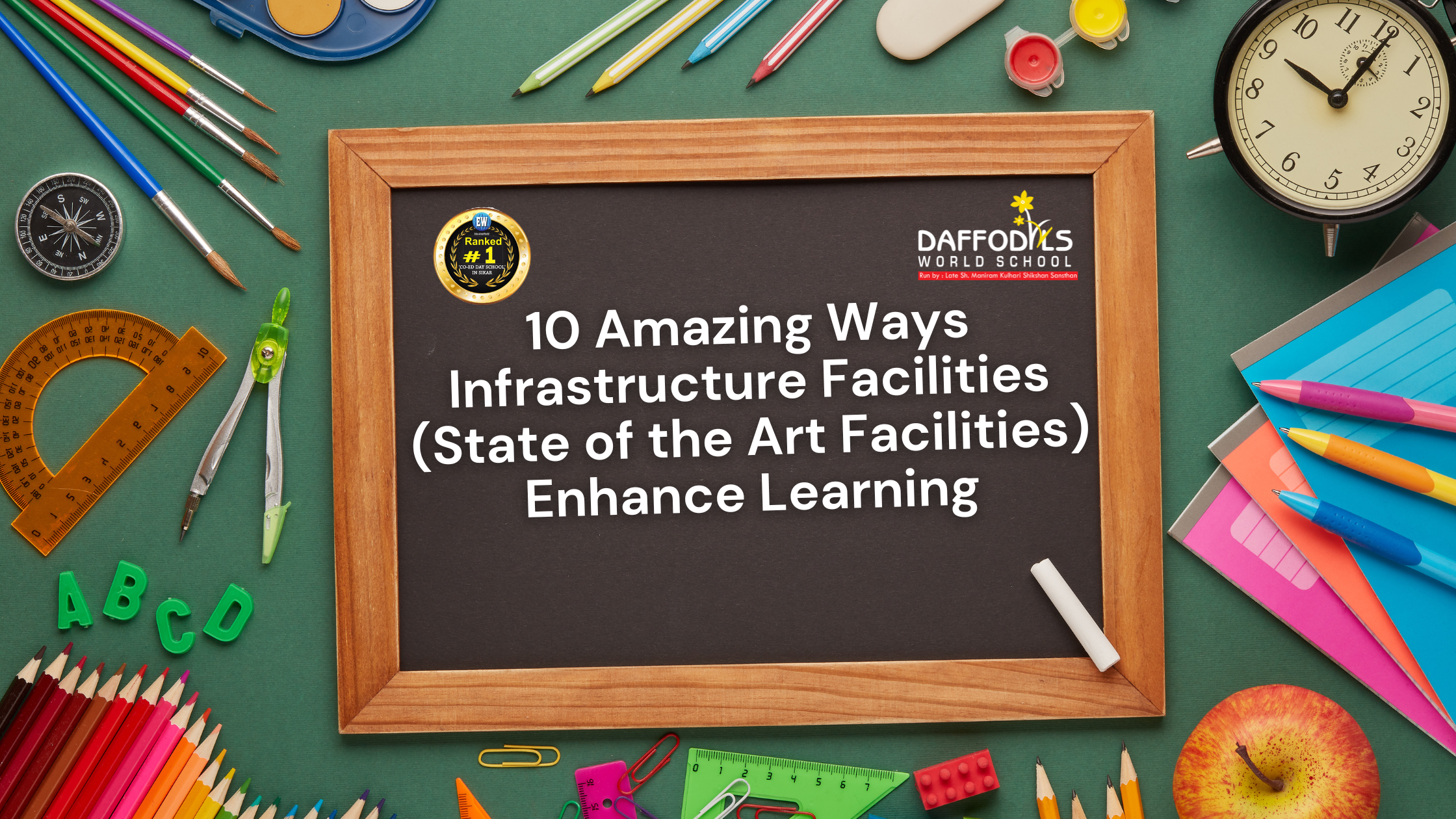Learn how students’ development is aided by experiential learning through real-world curriculum application. Understand how schools incorporates this approach to foster students’ critical thinking and creativity while equipping them with life skills.
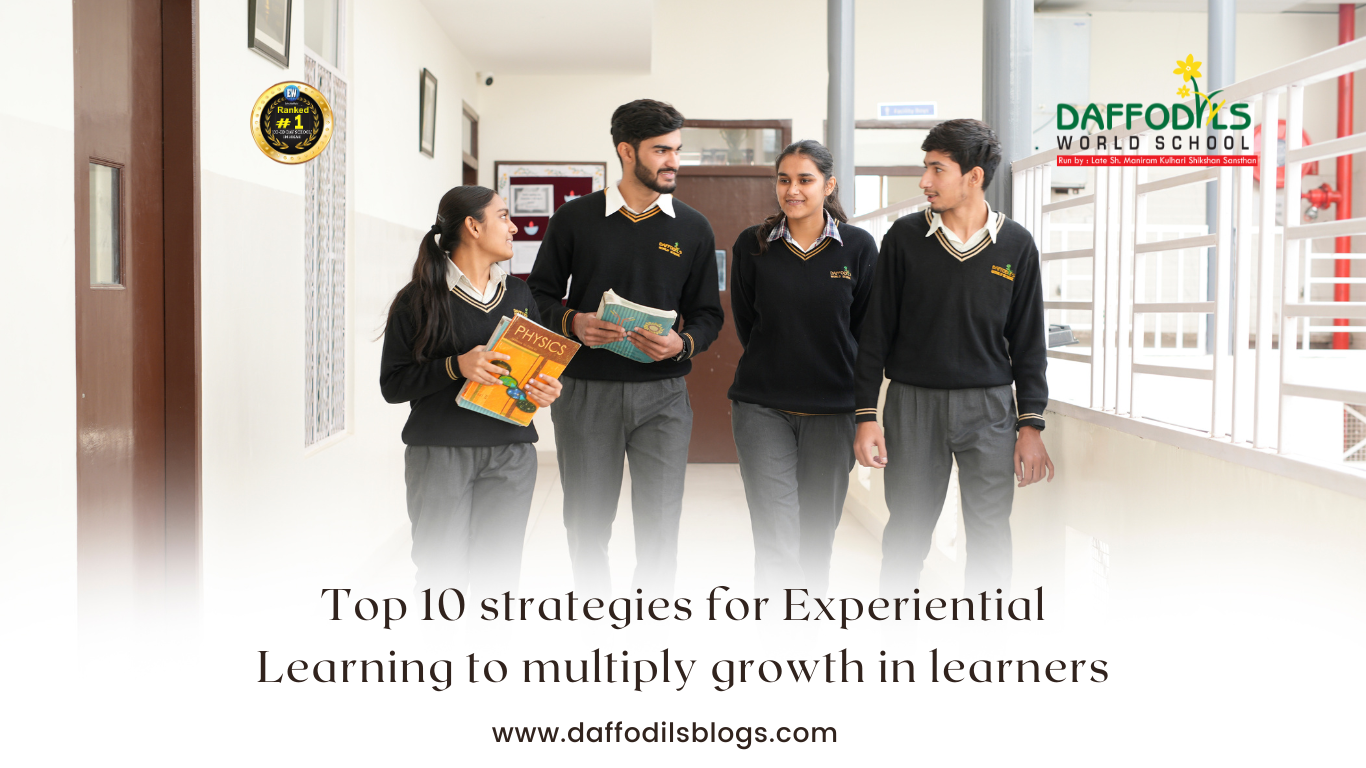
Using experiential learning has been one of the major avenues through which modern education has been able to connect with students more meaningfully and complex concepts have been better understood. Unlike the traditional learning method of reading and memorizing, experiential learning is centered on learning through experience, which is more dynamic and pragmatic.
This method instead of just increasing academic performance also helps in nurturing essential skills for life. Schools like Daffodils World School, Sikar, have been the trailblazers in the integration of experiential learning into their syllabus giving the young ones tools to learn through practical experiences that lead to a deeper understanding and growth which is a fundamental aspect of education.
Table of Contents
1. What is Experiential Learning?
It is a process where students learn by doing. It is a teaching method that focuses on students’ participation in such activities as projects, visits, real-life problem-solving and hands-on activities rather than used in the lectures and textbooks. Besides this, the method originates from the idea that students learn best when involved in the learning process, but they are not just being informed of the information.
2. Benefits of Experiential Learning for Students
1. Deeper Understanding: It provides students an opportunity to relate their theoretical groundwork with real situations thereby, making it much easier for them to master course content and understand a “big picture” of a particular area of learning.
2. Development of Critical Thinking Skills: Problem-solving involvement will thus help the students develop the ability of analyzing and critically thinking while they are examining situations and find solutions.
3. Enhanced Teamwork and Collaboration: Rather than the students remaining only in a classroom, the facilitation of experiential learning programs makes it possible for them to work in group settings, which is a good breeding ground for teamwork, communication and leadership skills.
4. Zealous Environment: The classroom environment that includes physical activities is more engaging than the traditional, didactic lectures. As a result, students’ interest and enthusiasm to learn are sustained.
5. More Innovative Approaches: Students are encouraged to think creatively and innovatively by tackling real-world situations, which improves their problem-solving abilities.
6. More Knowledge Retention: Active participation enhances the process of learning; thus, pupils are more inclined to hold the material in their memories for a considerable period.
7. Growth of Adjustment and Self-Confidence: It most often involves stepping out of comfort zones, giving students an opportunity to learn confidence and self-control.
8. Preparation for the Real World: Skills development in such domains as time management, teamwork, and decision-making is among the direct things that students acquire and transfer to their work environment.
9. Overall Growth: It aims not only at cognitive development but also at developing social skills, emotional intelligence and practical life skills.
10. Higher Degree of Responsibility: As the students’ learning becomes a personal issue, they in turn become more answerable to their education, thus advancing their accountability and independence.
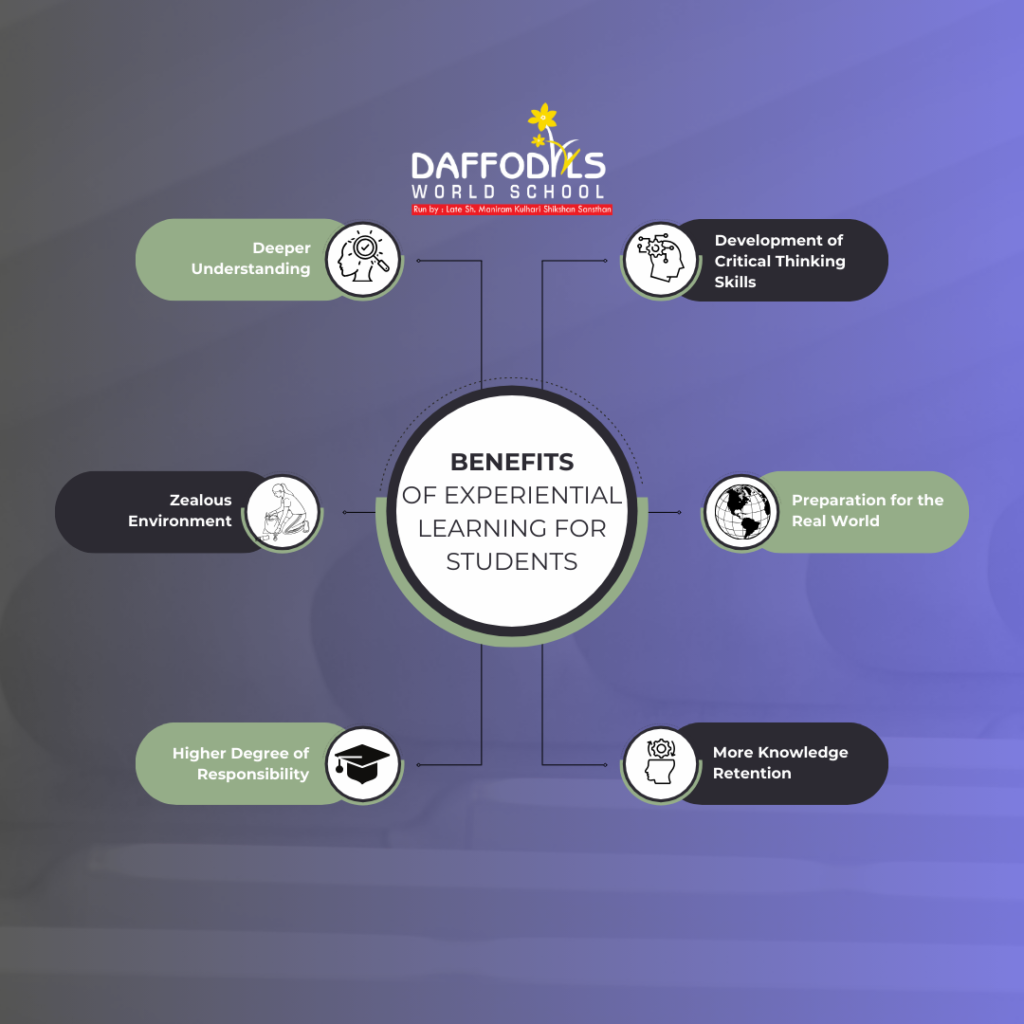
3. How Schools Implement Experiential Learning ?
At Daffodils World School, Sikar, students are given the chance to learn not only in the classroom setting, but also outdoors, thus passively making progress in the academic area. This is because students have the opportunity to carry out practical activities and work in teams. Also due to the fact that various other subjects such as arts, sports and cultural projects are examined in depth.
The educators at Daffodils World School integrate with a project-based learning and inquiry-driven approach in which students work on real-life problems and come up with solutions.
Apart from that, the school’s emphasis on extracurricular activities such as sports, arts and innovation labs gives students the possibility to use their skills outside the classroom. Daffodils’ promise to revolutionize teaching by making it more meaningful for the students who therefore master not only the “what” but also the “why” and “how” of their education.
4. FAQ
Q1: How is it distinct from conventional education?
In contrast to conventional learning, which is typically defined by theoretical knowledge and passive listening, it is based on student participation and the real-world application of what is learnt.
Q2: How does it help in skill development?
Through hands-on activities, the young people develop practical skills like problem-solving, collaboration and critical thinking, which are the skills that are important in everyday life and future careers.
Q3: How does Daffodils World School incorporate it?
Daffodils World School enhances it through science experiments, field visits, group projects and extracurricular activities to support students’ independent learning.
Q4: Can this methodology help with any topic?
All subjects, including social studies, science and mathematics, can benefit from it since it places a strong emphasis on real-world, hands-on engagement with the subject matter.

